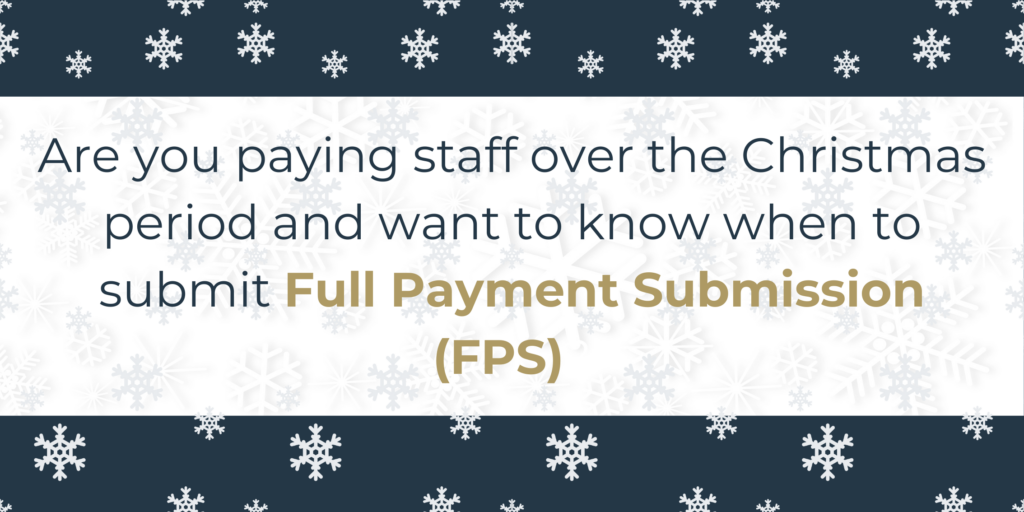A Guide to IR35 Tax & IR35 Rules
IR35 rules for freelance contractors and their private sector clients came into force in April 2021, following the introduction of legislation for the public sector in April 2017. IR35 is also known as ‘off-payroll working rules’ and ‘intermediaries legislation’. This guide to IR35 highlights the key issues around taxation and national insurance affecting both contractors and their clients.
Why did HMRC introduce IR35?
Originally introduced in 2000, the aim of IR35 is to put an end to disguised employment. It addresses concerns about contractors who work through intermediary companies (generally their own Personal Services Company), and who are effectively employees of the client, but without the same National Insurance (NI) and tax obligations. In 2017, public sector employers became responsible for determining whether contractors and other workers were taken on within the IR35 rules, and in 2021 the rules were extended to cover commercial businesses.
By working for their PSC or other intermediary, contractors can keep their salary low to avoid higher income tax bands, and to take income as dividends taxed at dividend rates. Their clients also avoid any obligations for them as individuals, for employers’ NI and workplace pensions.
The legislation has important implications for contractors and their clients. However, as HMRC continues to update its guidance, many questions still remain, not least around the issue of employer NI contributions and who will ultimately pick up the tab for this additional tax burden when a contractor is deemed to be ‘inside IR35’.
To discuss IR35 and the specific IR35 rules with our expert team, contact us today to arrange a free, informal consultation.
Who is exempt from IR35:
Sole traders and self-employed individuals are not affected by IR35, and their income tax and NI continues to be reported and paid under self assessment (ITSA) rules. Individuals who run their own business structure continue to be outside of the scope of the off-payroll working rules, as long as they do not work in the same way as an employee. For example, they may have their own business premises, employ other workers or work for a wide range of clients.
However, any worker providing services through an intermediary such as their own limited company, or PSC, need to be fully aware of how to operate within the IR35 rules.
Aside from sole traders, ‘outside IR35’ contracts include any work undertaken for smaller companies, defined by HMRC as businesses who meet two of the following criteria:
- An annual turnover of less than £10.2 million
- A balance sheet total of less than £5.1 million
- Fewer than 50 employees
However, any work carried out for clients who are not classified as smaller business may well be subject to IR35 rules. Contractors working for a range of clients can be in a position where some of their income is subject to IR35 while other revenue is not.
Who decides whether IR35 applies?
Since April 2021, responsibility for determining whether work falls within IR35 rests with companies as well as public sector clients. Guidance is available online from the government, and the Check Employment Status for Tax (CEST) tool. Critics have frequently pointed out that the online service does not always provide an answer:
The main challenge of IR35 remains how to determine whether or not the rules need to be applied for specific contracts. IR35 is based on case law and is built on the outcomes of individual judgements. As a result, the understanding of how the rules apply is changing and developing all the time.
IR35 looks at the nature of each contract with a client, not at individual companies. In addition to the government’s web resources, you can find out more from non-profit organisation IPSE, which is dedicated to challenging IR35 rules. However, for the clearest opinion on any case, an accounting professional with IR35 expertise is likely to provide the best guidance.
Inside IR35 or outside IR35?
There are three key tests which can help client companies and contractors determine whether their work is inside IR35 or outside IR35. However, there are a lack of hard and fast definitions which can create uncertainty for both clients and contractors. The tests are:
- Do you undertake the work yourself?
- Are you required to carry out the work yourself, without the right to provide a substitute worker to perform the duties? If a substitute worker is allowed, IR35 does not apply.
- Do you or your client control the way you work?
- Can you decide when, where and how you work? Or are you supervised like an employed member of the workforce? If the contractor decides themselves, IR35 is unlikely to apply.
- Are there mutual obligations?
- Is your client obliged to offer you work, and are you obliged to accept it? If the work is simply for a single contract without any further obligations for further work from either side, IR35 is less likely to apply. This consideration, known as mutuality of obligation, has been much disputed by HMRC, client companies and contractors. It is also the issue that is least well served by the CEST tool.
See more on Are you inside IR35?.
What other factors influence IR35 judgements?
Further factors influence IR35 judgements, although they are less important than the key tests mentioned above. These secondary issues centre on whether the contractor is ‘in business on their own account’ and can clarify the extent to which the contractor or freelancer operates inside or outside the client company. They cover such questions as:
- Do you have business insurance?
- Are you responsible for rectifying any faulty work in your own time, without being paid to do so?
- Does your contract prevent you from carrying out services for other clients?
- Do you use your own equipment?
- Are you integral to your client’s business?
- Does your email signature include your client’s company details?
- Do you have your own business cards?
- Do you have any employee benefits such as holiday or sick pay?
The greater the distinction between the way the contractor works and employed roles, the more likely that the activity will be outside IR35.
What happens if you do not follow IR35 rules?
If HMRC finds that the services you provide can be ‘deemed employment’ inside IR35, yet your tax payments have been on an outside IR35 basis, you will need to pay the missing tax back to HMRC, plus interest and any penalties.
HMRC is entitled to go back 4 years for an IR35 investigation, or as far as 20 years if they believe there is evidence of fraud or deliberate tax avoidance. Unpaid taxes and fines can amount to substantial amounts and can have very serious implications for contractors and clients.
When does HMRC carry out IR35 investigations?
HMRC use sophisticated software to analyse tax databases and identify discrepancies. The approach is far removed from hit or miss random inspections and is more likely to pick up incorrect or inconsistent tax information. Once the software has identified a possible issue, it is reviewed by HMRC and a decision is made on whether an inspector will investigate the IR35 status of a contractor or client.
The process begins with an HMRC letter asking for:
- An explanation of why you’ve decided IR35 doesn’t apply to you
- A breakdown of your limited company or partnership’s income for a particular year
- All your written contracts for work during the specified year
If your evidence is deemed adequate, the enquiry is closed. If not, you are likely to receive a request for a face-to-face meeting and further examination of contracts and your way of working.
HMRC will then issue you with an opinion on whether IR35 applies to you. You have the right to object and explain why, but if HMRC doesn’t agree with you, they’ll issue a decision which you can formally appeal against.
If the HMRC reviews and appeals team conclude that IR35 applies, but you don’t agree with their decision, you can still then appeal to the Tax Tribunal, and further to the High Court. It is important to be aware that the process can be a lengthy and a distraction from your working life, and that it can leave you with substantial costs to pay, even if you are found not to be in violation of IR35.
What is IR35 insurance?
IR35 insurance policies are available which are designed to cover the costs incurred in an HMRC investigation and to represent you before HMRC. In addition to these ‘defence only’ policies, comprehensive policies are also available which provide agreed limits of cover for liabilities. Needless to say, comprehensive policies come at a price, and, as with all insurance policies, it is essential to understand exactly what is, and what is not, covered.
Statistically, you are unlikely to be subject to an HMRC investigation. The Office of National Statistics identifies 4.7 million people working for themselves in the UK, but there are currently only an estimated 1,000 IR35 investigations every year. So the odds are good, but potentially high penalties need to considered.
What is an IR35 contract review?
An IR35 contract review by a professional firm with IR35 expertise can provide reassurance for contractors that they are outside IR35. The review will cover the contract itself and the working practices involved in performing your duties. The evidence can prove decisive in any HMRC investigation and shows that you have taken reasonable steps to ascertain the status of your contract.
What is a status determination statement?
Client organisations have responsibility for determining whether a contract is inside or outside IR35 and are now required to provide a status determination statement (SDS) which shows how they have come to an IR35 decision for each of its contractors. The document has to clearly state the contractor’s IR35 status. A SDS has to be provided for each individual and provided to each contractor before they begin work.
Failure to take reasonable care over SDS statements can result in the client company being responsible for their contractors’ NI contributions. While the SDS is the client’s responsibility, we strongly recommend that contractors, or their professional advisors, thoroughly review the document before signing the contract.
Umbrella companies and IR35
As an alternative to contracting through your own PSC, one of the most useful ways of addressing inside IR35 issues is to join an umbrella company.
Umbrella companies exist to employ contractors and manage their pay, tax and NI through PAYE. They are an intermediary between the contractor and the end client or employment agency which has placed the contractor.
Contractors become an employee of the umbrella company, freeing them of the administrative and record-keeping responsibilities of running their own limited company. As an employee, you also have benefits such as statutory sick pay, paid holidays, paid maternity leave and a workplace pension.
However, as an employee you do not have as many opportunities for tax efficiency, and you are dependent on the umbrella company being compliant with all their obligations. The most reliable umbrella companies are accredited by trade bodies such as the Freelancer and Contractor Services Association.
You can still keep your PSC in operation, which is advisable if you are undertaking a number of contracts some of which are inside IR35 and some of which are outside. The advantage of undertaking both types of contracts through your PSC is that all income and tax is one place.
IR35 FAQs
Does IR35 affect me?
The scope of IR35, or off-payroll working legislation, covers anyone who could be judged to be in ‘disguised employment’. In other words, they are people who carry out the duties of an employee, but do not have employed status. See here for full guidance from HMRC on Employment Status.
In broad terms, IR35 does not apply if:
- you are genuinely self-employed to the satisfaction of HMRC
- you contract with clients with turnover no more than £10.2 million, a balance sheet of no more than £5.1 million and no more than 50 employees
Off-payroll working rules generally apply if you provide services through your own limited company or another type of intermediary. For contractors and their clients, IR35 issues are subject to several key tests and considerations, the most contentious of which is known as mutuality of obligation (MOO). MOO means that there is an expectation from the client that the contractor will undertake future work, and an expectation from the contractor that future work will be forthcoming.
Who is responsible for determining whether IR35 applies?
Client companies, or public sector organisations, carry the responsibility for determining the IR35 status of every contract they award. For each contract, the client must complete a status determination statement (SDS) which covers the work involved and the way it is carried out. The SDS must also clearly state whether the work is inside or outside IR35.
What is an intermediary for IR35?
Intermediaries arrange work for people with a third party. For example, an intermediary will supply one or more workers to a client, is paid by the client and then pays the worker. Intermediaries can be employment agencies, umbrella companies or personal service companies.
What is CEST?
CEST is the government’s Check Employment Status for Tax online tool. Using a series of questions about your work activities and conditions, the tool will tell you whether or not your work falls under IR35 rules. However, CEST has been criticised by various bodies for its failure to give clear answers, especially for work where mutuality of obligation is unclear. Regardless of the answers from CEST, responsibility for determining IR35 status rests firmly with client organisations.
How many IR35 investigations do HMRC carry out?
There are no official figures for the number of investigations into IR35 that are undertaken by HMRC inspectors, but authoritative estimates put the number at no more than 1,000 annually. Based on there being over 5 million self-employed people in the UK, the statistical chances of being investigated are therefore extremely low. However, the chances of being investigated increase with any evidence of inconsistent or inaccurate tax reporting uncovered by HMRC’s thorough analysis tools.
For expert advice on IR35 rules and issues for client companies and contractors, please contact Perrys Chartered Accountants now for a consultation.








